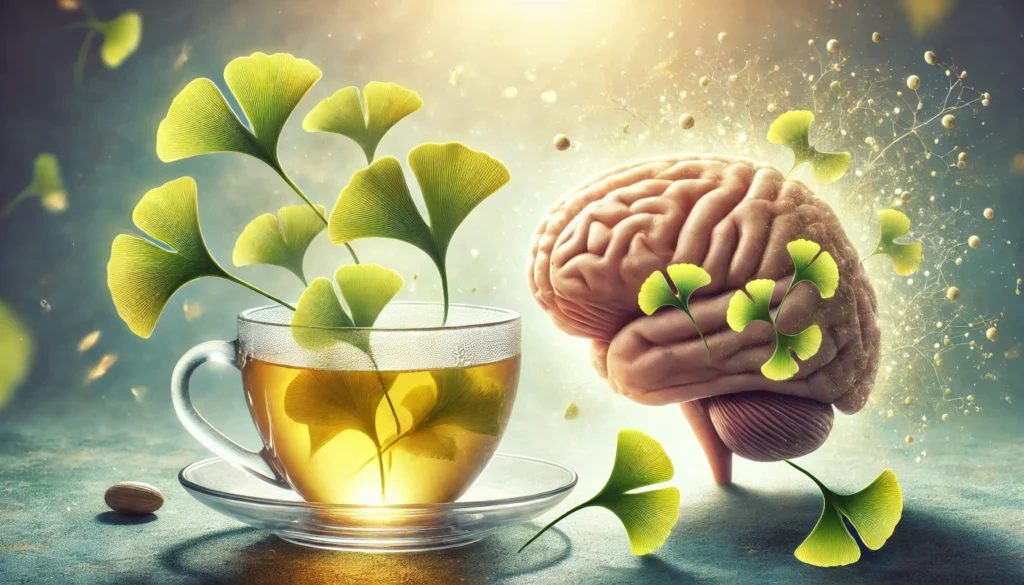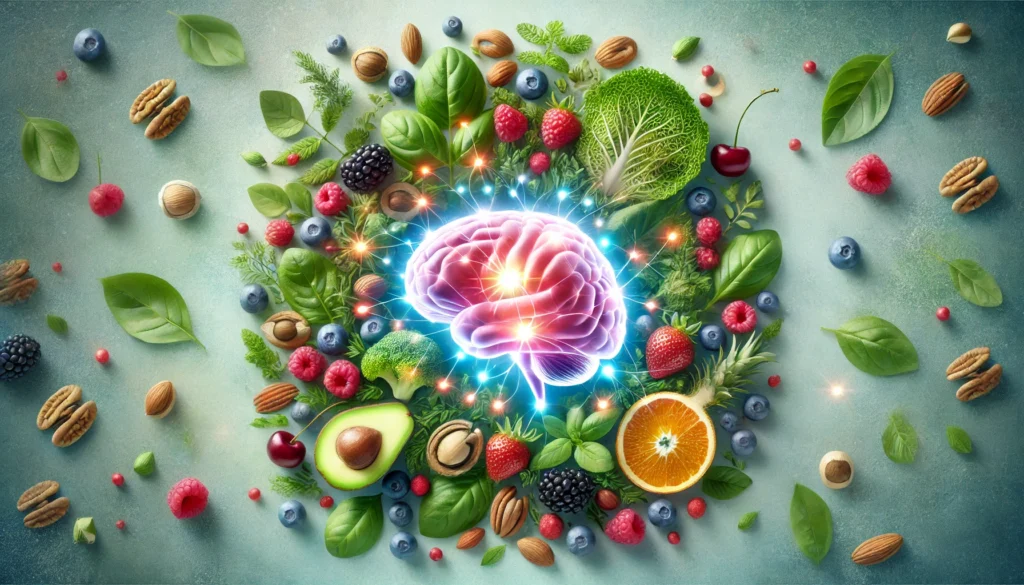Introduction
Memory loss and cognitive decline are common concerns as individuals age, affecting millions worldwide. While conventional medications exist to slow the progression of conditions like dementia, a growing body of research highlights the benefits of natural remedies for memory loss and dementia. These remedies support brain health by enhancing neuroprotection, reducing inflammation, and promoting optimal cognitive function.
You may also like: How Does Memory Change with Age? Understanding Neural Pathway Strengthening in Seniors
For those seeking natural medication for memory loss, a wide range of plant-based supplements, dietary strategies, and lifestyle modifications can contribute to cognitive longevity. The human brain possesses remarkable plasticity, meaning it can adapt and regenerate under the right conditions. By integrating evidence-based natural approaches, individuals can support memory recall and potentially slow cognitive decline.
This article explores natural remedies for memory loss and dementia, examining their mechanisms, scientific validity, and practical application. Whether considering herbal supplements, dietary changes, or mind-body interventions, understanding how these natural solutions work can empower individuals to take a proactive role in maintaining cognitive health.

The Science Behind Memory Loss and Dementia
Memory function is a complex process that involves encoding, storage, and retrieval of information. Various brain regions, including the hippocampus, prefrontal cortex, and amygdala, play essential roles in memory formation and recall. As individuals age, these neural structures may undergo changes that contribute to cognitive decline.
Dementia, an umbrella term for conditions characterized by progressive cognitive impairment, is associated with neurodegeneration, inflammation, and oxidative stress. Alzheimer’s disease, the most common form of dementia, involves the accumulation of beta-amyloid plaques and tau tangles, leading to neuronal death. Other contributing factors to memory loss include poor circulation, chronic stress, nutritional deficiencies, and metabolic disorders such as diabetes.
While conventional treatments target symptoms, natural remedies for memory loss and dementia aim to address underlying causes by promoting neuroprotection, reducing inflammation, and enhancing synaptic plasticity.

Herbal and Botanical Remedies for Memory Support
Ginkgo Biloba
Ginkgo biloba, a well-researched botanical, has been shown to improve cognitive function by enhancing blood flow to the brain. Its neuroprotective properties help reduce oxidative stress and support memory recall. Studies indicate that ginkgo biloba may benefit individuals with mild cognitive impairment by slowing progression.
Bacopa Monnieri
Bacopa monnieri, an adaptogenic herb used in Ayurvedic medicine, has been found to enhance synaptic plasticity and improve memory function. Its active compounds, known as bacosides, exhibit antioxidant and anti-inflammatory properties, making it a promising natural medication for memory loss.
Rhodiola Rosea
Rhodiola rosea is another adaptogen known for its ability to enhance mental clarity, reduce fatigue, and combat stress-related cognitive decline. By modulating neurotransmitter activity, Rhodiola supports cognitive resilience and memory retention.
Lion’s Mane Mushroom
Lion’s mane mushroom (Hericium erinaceus) has gained attention for its potential to stimulate nerve growth factor (NGF), a protein essential for neural regeneration. Research suggests that Lion’s Mane supplementation may enhance cognitive function, particularly in older adults experiencing mild cognitive impairment.

Dietary Strategies for Cognitive Health
Mediterranean Diet
The Mediterranean diet, rich in fruits, vegetables, healthy fats, and lean proteins, has been associated with reduced dementia risk. Omega-3 fatty acids, found in fish like salmon and sardines, support brain health by reducing inflammation and promoting synaptic function.
Antioxidant-Rich Foods
Polyphenol-rich foods such as blueberries, dark chocolate, and green tea contain powerful antioxidants that protect neurons from oxidative damage. These compounds help enhance cognitive performance and memory retention.
Turmeric and Curcumin
Curcumin, the active compound in turmeric, has been studied for its neuroprotective effects. Its anti-inflammatory and antioxidant properties may help prevent beta-amyloid accumulation and improve cognitive function in individuals at risk of dementia.
Lifestyle Interventions for Memory Enhancement
Physical Exercise
Regular physical activity enhances neurogenesis and promotes brain-derived neurotrophic factor (BDNF), a protein that supports memory and learning. Aerobic exercises like walking, swimming, and cycling contribute to improved cognitive function.
Mindfulness and Meditation
Mindfulness meditation has been shown to reduce stress-related cognitive decline and improve attention span. Techniques such as deep breathing and guided imagery help regulate stress hormones that can impair memory function.
Social Engagement
Staying socially active has a profound impact on cognitive health. Engaging in meaningful conversations, participating in community activities, and maintaining strong relationships contribute to emotional and cognitive well-being.
Can Natural Remedies Reverse Memory Loss?
While natural remedies cannot completely reverse advanced dementia, they can significantly slow its progression and improve quality of life. Combining multiple strategies—such as herbal supplementation, dietary modifications, and cognitive training—creates a holistic approach to memory preservation.
Studies suggest that early intervention plays a crucial role in maintaining cognitive health. By adopting these natural strategies, individuals can support brain function and reduce the risk of developing memory-related conditions.
Frequently Asked Questions (FAQ)
What are the best natural remedies for memory loss and dementia?
Natural remedies for memory loss and dementia include a combination of lifestyle changes, herbal supplements, and cognitive exercises. Omega-3 fatty acids, found in fish oil, are known to support brain health and may slow cognitive decline. Adaptogenic herbs like ashwagandha and ginseng have been studied for their neuroprotective properties and may help enhance recall ability. Regular physical exercise, particularly aerobic activities, improves blood flow to the brain, supporting overall cognitive function. A well-balanced diet, rich in antioxidants from berries, nuts, and leafy greens, can also act as a natural medication for memory loss by reducing oxidative stress in the brain.
Can natural medication for memory loss effectively replace prescription drugs?
While natural medication for memory loss can be beneficial, it should not be viewed as a direct replacement for prescription drugs in treating dementia-related conditions. Many natural remedies for memory loss and dementia, such as ginkgo biloba and turmeric, have shown promising effects in supporting cognitive function. However, their efficacy varies based on individual health conditions, and they may work best when combined with conventional treatments. Consulting a healthcare provider before making any changes to a treatment plan is essential to ensure that natural interventions complement prescribed medications rather than interfere with them. An integrative approach often yields the best results.
How do dietary changes support memory function in older adults?
A diet rich in essential nutrients plays a crucial role in maintaining memory and cognitive function. The Mediterranean diet, which includes whole grains, lean proteins, healthy fats, and antioxidant-rich foods, has been linked to reduced cognitive decline. Natural medication for memory loss often includes dietary supplements such as vitamin B12, folate, and magnesium, all of which support brain health. Reducing sugar intake and avoiding processed foods can help regulate blood sugar levels, preventing cognitive fog and memory issues. Older adults who consistently consume nutrient-dense foods often experience improved memory recollection and reduced risk of neurodegenerative diseases.
Are there specific herbs that act as natural medication for memory loss?
Yes, several herbs are known for their cognitive-enhancing properties and may serve as natural medication for memory loss. Ginkgo biloba is widely studied for its ability to improve blood circulation in the brain, potentially enhancing memory. Bacopa monnieri, an herb used in Ayurvedic medicine, has been shown to support memory retention and cognitive processing. Rosemary, often used in aromatherapy, contains compounds that may stimulate mental clarity and recall ability. These herbs, when used as part of a comprehensive approach, can contribute to natural remedies for memory loss and dementia.
How does exercise contribute to cognitive function and memory retention?
Physical activity is one of the most effective natural remedies for memory loss and dementia. Aerobic exercises, such as walking, swimming, and cycling, increase blood circulation to the brain, enhancing cognitive function. Strength training has also been linked to improved memory retention, as it helps regulate hormones that affect brain health. Activities like yoga and tai chi improve focus and reduce stress, which can help older adults maintain their cognitive abilities. Regular movement encourages the production of brain-derived neurotrophic factor (BDNF), a protein essential for learning and memory.
What role does sleep play in preventing memory loss?
Quality sleep is essential for memory consolidation and overall cognitive function. During deep sleep, the brain processes and stores new information, strengthening recall memory. Sleep deprivation has been linked to increased beta-amyloid buildup, a protein associated with Alzheimer’s disease. Natural remedies for memory loss and dementia often emphasize maintaining a healthy sleep cycle by practicing good sleep hygiene, reducing screen time before bed, and incorporating relaxation techniques. Herbal teas like chamomile and valerian root can serve as natural medication for memory loss by promoting restful sleep.
Can stress management techniques improve memory function?
Yes, managing stress is a critical factor in preventing cognitive decline. Chronic stress leads to high cortisol levels, which can impair memory and brain function over time. Practices like meditation, mindfulness, and deep breathing exercises can significantly reduce stress levels, improving overall mental clarity. Engaging in hobbies, social interactions, and creative activities provides mental stimulation and strengthens recall memory. Natural remedies for memory loss and dementia often include stress-reduction strategies to promote long-term brain health.
How does hydration impact memory and cognitive function?
Proper hydration is essential for brain health, as even mild dehydration can impair cognitive function and memory. Water plays a crucial role in transporting nutrients and oxygen to the brain, helping maintain neural connections. Older adults who do not consume enough fluids may experience confusion, brain fog, and short-term memory issues. Herbal teas infused with memory-boosting ingredients like ginseng and peppermint can serve as natural medication for memory loss while promoting hydration. Maintaining a consistent water intake throughout the day helps enhance focus and recall ability.
Are there any mental exercises that can naturally improve memory?
Engaging in mental exercises is one of the most effective natural remedies for memory loss and dementia. Brain-training games, such as puzzles, crosswords, and memory-matching activities, can enhance cognitive function. Learning a new skill, such as playing a musical instrument or speaking a new language, stimulates different areas of the brain and strengthens recall memory. Reading books, engaging in discussions, and practicing visualization techniques also contribute to cognitive resilience. A daily mental workout helps keep the brain sharp and active as one ages.
Can social interactions help prevent memory decline?
Yes, maintaining an active social life is a key component in preserving memory and cognitive function. Regular conversations, group activities, and social engagement stimulate the brain and encourage recall ability. Studies suggest that older adults who engage in social interactions have a lower risk of developing dementia. Participating in volunteer work, joining clubs, or engaging in community events can provide mental stimulation and emotional well-being. Natural remedies for memory loss and dementia emphasize the importance of social connections in maintaining brain health.
Conclusion
Natural remedies for memory loss and dementia offer promising avenues for supporting cognitive function. From herbal supplements like ginkgo biloba and bacopa monnieri to dietary strategies and lifestyle interventions, a multi-faceted approach can enhance memory retention and overall brain health. By integrating these evidence-based solutions, individuals can take proactive steps toward cognitive longevity and improved quality of life.
memory enhancement supplements, brain health strategies, cognitive function support, herbal supplements for memory, natural brain boosters, best herbs for dementia, anti-inflammatory diet for brain health, cognitive resilience, neuroprotective nutrients, mindfulness for memory, exercise and brain health, holistic memory support, functional foods for cognition, brain plasticity, mental clarity tips, stress management for memory, lifestyle changes for dementia, neurogenesis stimulation, plant-based brain health, longevity and cognition
Further Reading:
Assessing Cognitive Impairment in Older Patients
What to Know About Cognitive Decline in Older Adults
.Important Note: The information contained in this article is for general informational purposes only, and should not be construed as health or medical advice, nor is it intended to diagnose, prevent, treat, or cure any disease or health condition. Before embarking on any diet, fitness regimen, or program of nutritional supplementation, it is advisable to consult your healthcare professional in order to determine its safety and probable efficacy in terms of your individual state of health.Regarding Nutritional Supplements Or Other Non-Prescription Health Products: If any nutritional supplements or other non-prescription health products are mentioned in the foregoing article, any claims or statements made about them have not been evaluated by the U.S. Food and Drug Administration, and such nutritional supplements or other health products are not intended to diagnose, treat, cure, or prevent any disease.


